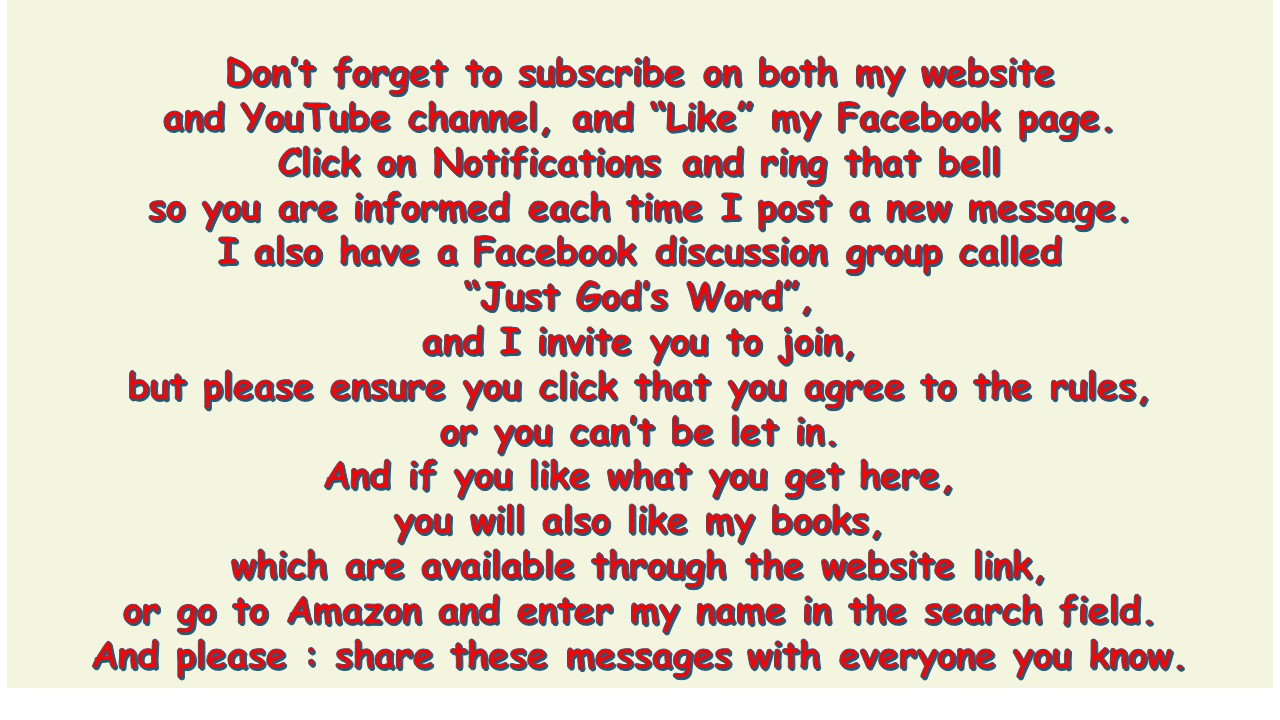If you are wondering where I have been for the past two weeks, Donna and I were vacationing in Ireland. We had a great time, and later I will post a video of our travels you can watch from my website. You will find it under the Picture Album tab.
If you prefer to watch a video, click on this link: Watch the video.
Before we start, let’s take a look at the passage I am talking about:
No one sews a piece of unshrunk cloth on an old coat; if he does, the new patch tears away from the old cloth and leaves a worse hole. And no one puts new wine in old wineskins; if he does, the wine will burst the skins, and both the wine and the skins will be ruined. Rather, new wine is for freshly prepared wineskins.”
I have often heard the Christian interpretation of this passage to indicate that Yeshua was teaching that the Torah was no longer applicable to his disciples or followers, because he was giving them something new.

And, to a degree, they are right: Yeshua was teaching his listeners something new… but it wasn’t a new religion rejecting obedience to Torah, it was a new attitude towards how to obey the Torah!
You see, throughout the Gospels, one recurring theme that Yeshua taught was how the Pharisees only taught the P’shat, i.e., the plain language meaning of the laws in the Torah. Yeshua taught the Remes, the deeper, spiritual meaning of those laws, which is truly what the “new covenant” is all about (read Jeremiah 31:31– THAT is the new covenant!)
What Yeshua was talking about was not the Torah, but the attitude we are to have regarding the Torah. We are not just to do it, rote, like some automaton just going through the motions, but we are to live it in our soul, in our heart, in our very essence: we are to BE Torah!
In order for that to happen, the people had to change their understanding of what the Torah really means, and to change their attitude towards God, towards obedience, and especially towards the teachings of the Pharisees.
If they liked what Yeshua taught but continued to live and worship as the Pharisees taught (especially regarding their demands to obey their man-made requirements), then they were like the new patch on old cloth, the new patch being Yeshua’s teachings about the spiritual meaning, but the old cloth being the Pharisaical teachings which left no room for expansion of understanding.
In simpler terms, hearing Yeshua’s deeper understanding of the Torah, but still doing as the Pharisees say will not allow them to expand (stretch) their spiritual being to be more in line with God’s new covenant. That means trying to incorporate Yeshua’s teachings (a new patch) but living the way the Pharisees say to (the old cloth, which can’t stretch), something will have to give. And, sadly, as the parable of the Sower tells us, it will likely be the new teachings.
Therefore, if you have been taught that to follow Yeshua (Jesus) you need to ignore the Torah, you have been taught incorrectly: at least, according to what Yeshua taught.
Salvation is more than just Torah obedience, and it is more than just faith in God and accepting Yeshua as the Messiah- it is loving God with all your heart, soul, and mind (does that sound familiar?); and, when you do that, the Torah will be written on your heart, and you will be a new patch on new cloth, and new wine in new wineskins.
Thank you for being here, and that’s it for this week. Until next time, l’hitraot and (an early) Shabbat Shalom!


